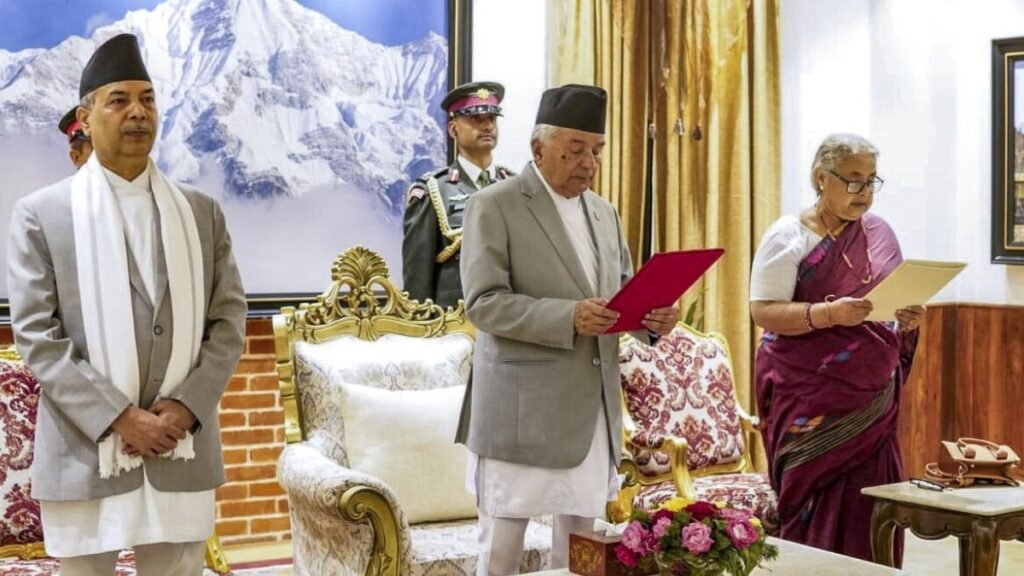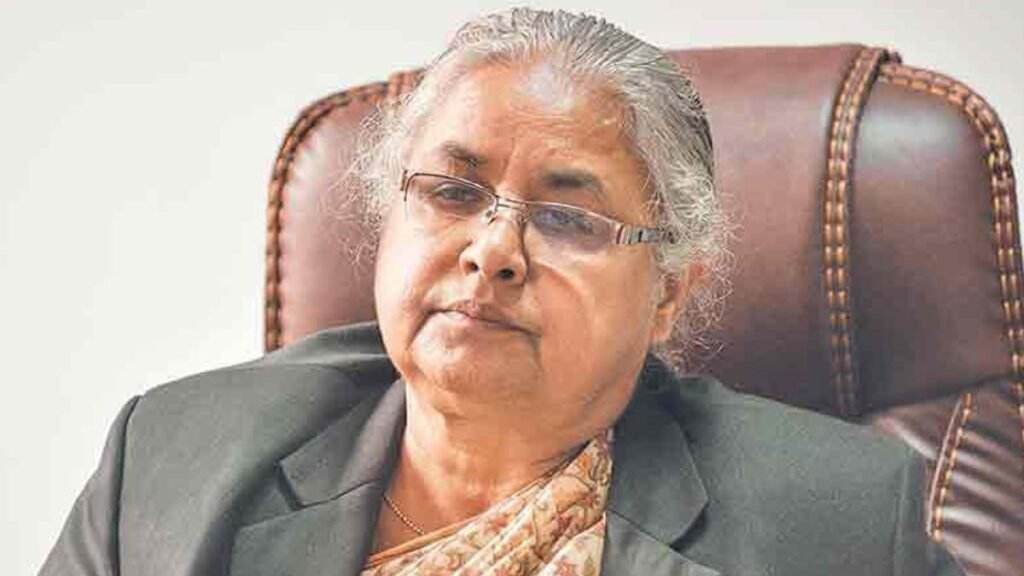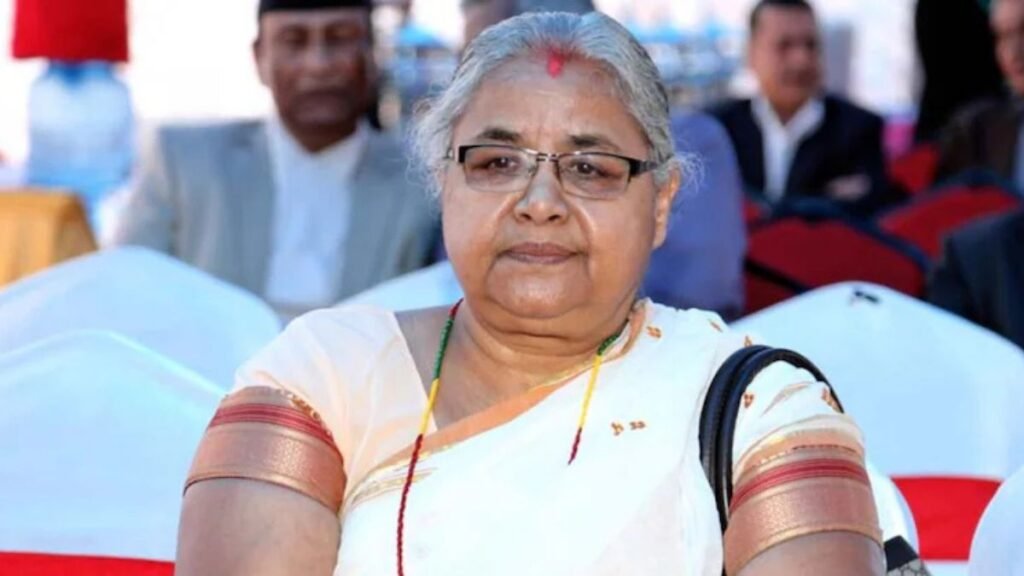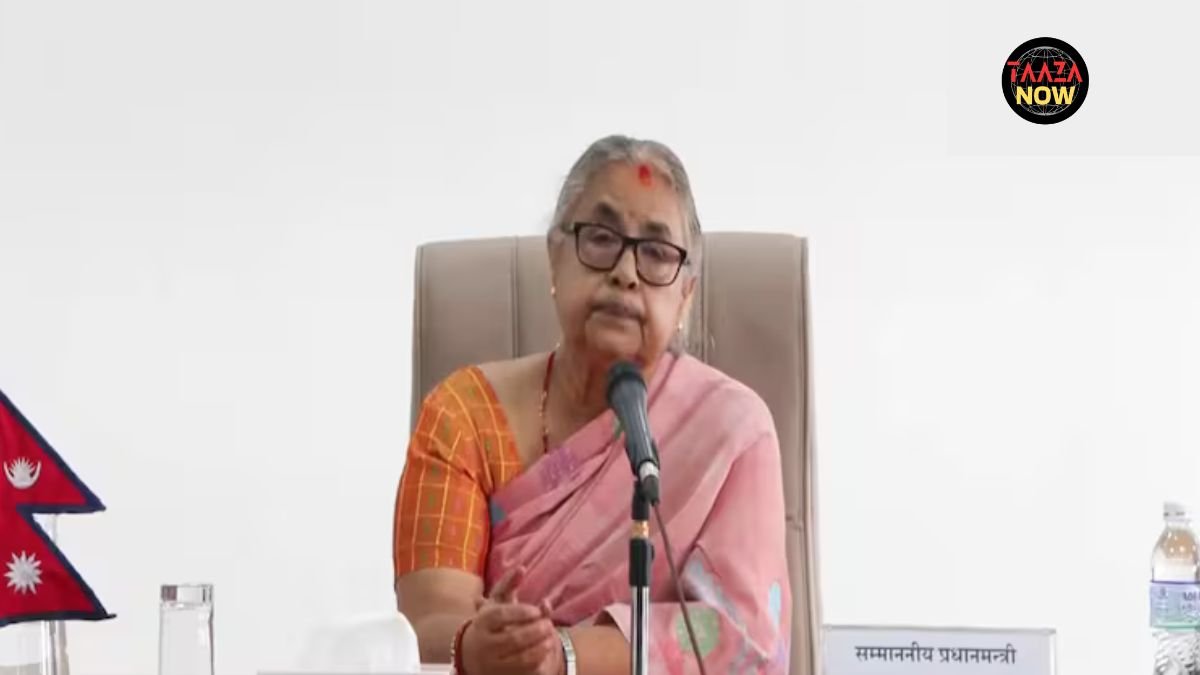Nepal has entered a historic chapter in its political landscape with Sushila Karki officially assuming the role of interim Prime Minister. Following her appointment, curfew restrictions across the country have eased, signaling a move toward stability and renewed governance. This landmark appointment comes after weeks of political unrest that culminated in the resignation of former Prime Minister K P Sharma Oli.
Historic Appointment and Background
Sushila Karki was previously Nepal’s Chief Justice, making her rise to the position of interim Prime Minister a groundbreaking moment in the nation’s history. Her appointment marks the first time a woman has held the country’s top executive office, highlighting the progress of gender representation in Nepalese politics.

The office of the Prime Minister will now operate from the newly established Home Ministry building, reflecting the government’s plans to modernize and streamline administrative operations. President Ramchandra Paudel has urged all political parties to collaborate in preparing for the upcoming elections to the House of Representatives, scheduled for March 5. This cooperation is seen as vital to ensuring a smooth transition and upholding democratic processes.
Political Context Leading to Sushila Karki’s Appointment
The appointment of Sushila Karki follows a period of significant political turmoil in Nepal. Violent protests and public unrest over recent policy decisions created an environment that ultimately led to the resignation of K P Sharma Oli. During this turbulent period, calls for strong leadership and impartial governance were prominent, paving the way for Sushila Karki’s historic appointment as the interim Prime Minister.
Political analysts highlight that Sushila Karki’s judicial experience brings credibility and a commitment to legal and constitutional principles, which are essential during times of national transition. Her prior role as Chief Justice ensures that she is well-versed in navigating complex political and legal frameworks, positioning her as a stabilizing force in Nepalese politics.
Also Read – Trump Xi Beijing Summit 2025: Will the Leaders Meet Amid Trade and Fentanyl Tensions?
China Welcomes Sushila Karki
The international community has closely monitored Nepal’s political developments, and China was quick to respond to Sushila Karki’s appointment. The Chinese Foreign Ministry congratulated Sushila Karki, reaffirming China’s support for Nepal’s sovereignty and independence. Describing the relationship between China and Nepal as a “time-honoured friendship,” officials emphasized the importance of the Five Principles of Peaceful Coexistence in maintaining strong bilateral ties.
A spokesperson from China’s Foreign Ministry stated, “China congratulates Madam Sushila Karki on becoming Prime Minister of Nepal’s interim government.” This acknowledgment reflects China’s commitment to fostering positive diplomatic relations while respecting Nepal’s political autonomy.
Role and Expectations of Sushila Karki
As interim Prime Minister, Sushila Karki faces the challenge of steering Nepal through a critical period marked by political uncertainty and upcoming elections. Her government is tasked with maintaining law and order, overseeing administrative functions, and ensuring free and fair elections for the House of Representatives.

Observers note that Sushila Karki’s legal expertise is particularly valuable in this transitional phase. Her focus on the rule of law and adherence to constitutional principles is expected to provide stability and restore public confidence in governance. Additionally, her historic role as the first woman to lead the country sets a precedent for gender equality in Nepalese politics.
International Significance
The appointment of Sushila Karki holds significant international importance. Nepal is strategically positioned between two major powers, China and India, making political stability crucial for regional diplomacy. China’s immediate welcome of Sushila Karki signals the country’s intent to maintain strong diplomatic and economic relations with Nepal.
At the same time, international observers are monitoring how Sushila Karki navigates relations with other global partners, particularly in trade and development sectors. The interim Prime Minister’s approach to diplomacy is expected to influence Nepal’s foreign policy priorities and its engagement with key international stakeholders.
Challenges Ahead
Despite widespread support, Sushila Karki faces several challenges as interim Prime Minister. Political fragmentation within Nepalese parties, social unrest, and economic pressures are among the issues demanding immediate attention. Analysts caution that the success of her interim government will depend on her ability to build consensus, enforce constitutional norms, and guide the country toward peaceful elections.
Moreover, maintaining strong relations with neighboring countries while asserting Nepal’s political autonomy remains a delicate balancing act for Sushila Karki. Her leadership style, decision-making, and ability to manage competing interests will be critical in determining the effectiveness of her tenure.
Symbolism and Legacy
The appointment of Sushila Karki is not just a political milestone; it also carries symbolic weight. As the first woman to hold the office of Prime Minister in Nepal, her leadership represents a step forward in gender equality and the empowerment of women in South Asian politics.

Experts suggest that the tenure of Sushila Karki, even as interim Prime Minister, will serve as an example for future female leaders in Nepal and across the region. Her role emphasizes that leadership capabilities transcend gender and that merit, experience, and vision remain central to political authority.
Taazanow.com- Click Here

